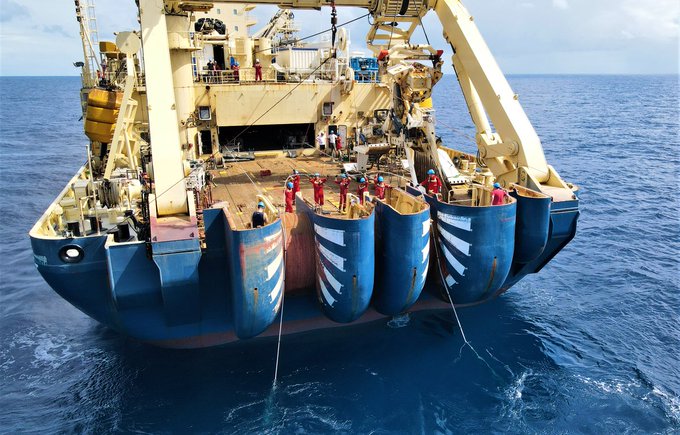The year 2022 was a major milestone for technological advancement in Nigeria. Many have attributed this to the priority given to improving digital services and infrastructure in the country.
Before, there was a high dependence on crude oil, which used to be the main input of the gross domestic product (GDP) of the economy. But with the rise of new companies in all sectors in Nigeria, digital technology grew and became a force to be reckoned with in the economy and national development.
According to the National Bureau of Statistics (NBS), information and communication technologies (ICT) led the non-oil sector to contribute 94.34 percent of the country’s GDP. ICT contributed 20.32 percent to the GDP record in the third quarter of 2022.
In 2022, commendable efforts have been made by the Ministry of Communication and Digital Economy as well as the Nigerian Communications Commission (NCC) to ensure remarkable developments in Nigeria’s digital sector.
Here are the highlights that contributed to the advancement of Nigeria’s digital sector in 2022.
EQUIAN CABLE
The arrival Google’s Equiano submarine cable in Lagos, Nigeria, was one of the largest digital provisioning in the country this year. Nigerian was the second destination in Africa after To carry out and was named after Olaudah Equiano, a Nigerian-born writer and abolitionist.
The Submarine cable offers a fifth generation (5G) mobile service that stretches from Portugal along the west coast of Africa and connects Europe with Togo, Nigeria, Namibia, South Africa and Saint Helena.
Their presence in Nigeria promises to revolutionize the Internet experience for the country’s more than 214 million people and businesses in many different ways.
According to Isa Pantami, Minister of Communications and Digital Economy, the Equiano submarine cable system is proof of the government commitment to provide an enabling environment that encourages foreign and local investment in the country.
5G SPECTRUM
In December 2021, after 11 bidding rounds, Mafab and MTN Nigeria emerged as the two successful winners of the 3.5 gigahertz (GHz) spectrum auction for the deployment of 5G technology in Nigeria.
MTN Nigeria has started an open 5G pilot ahead of commercial launch in seven cities, while Mafab is expected to do so in December 2022.
Meanwhile, the NCC announced that two additional 5G lots it will be auctioned for the reserved price of $273 million and will be implemented in 2023 after due process has been followed by the licensee.
According to Umar Danbatta, Executive Vice President of NCC, the plan is to generate N500 billion as revenue for the federal government from the auction of two 5G spectrums in 2023.
START ACT
Before the start bill was happened in julythe tech industry and entrepreneurs struggled to peak, fought regulations and regulators, and had limited government support, among others.
However, in October, President Muhammadu Buhari signed the bill. According to the minister of communications and digital economy, the bill will go a long way in creating and developing an enabling environment.
Likewise, the 2022 startup law provides for “the development and growth of technology-related talent.”
With the document, companies will need to obtain a certificate known as a “startup label,” before they can be considered a startup entity.
According to the document, startups can also access a special seed fund created by law. The fund will provide labeled start-ups with funding and support for tech labs, accelerators, incubators and hubs.
BROADBAND PENETRATION
An important tool that contributes to technological advancement is the aggressive penetration of broadband.
In August, Danbatta said that broadband penetration in the country scaled to 44.5 percent in July from 40.9 percent in February.
Broadband penetration refers to the number of subscriptions to fixed and mobile broadband services.
To achieve its goal of reaching the national broadband target of 70 percent by 2025, the federal executive council (FEC) approved the sum of N17.4 billion for the acquisition of broadband infrastructure across the six geopolitical zones.
This will also help strengthen digital connectivity and expand access to information, as well as improve the economy.







